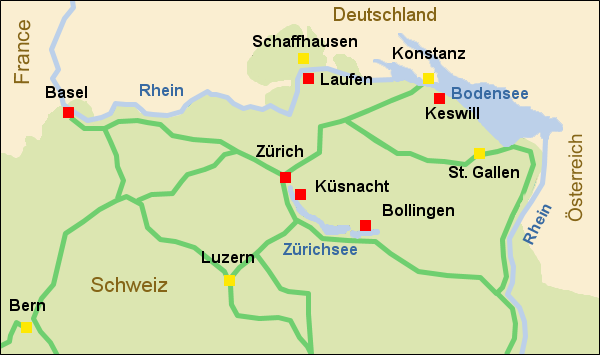January 2026
 Critique of archetype theory: yesterday and today
Critique of archetype theory: yesterday and today
This article critically reexamines classical Jungian theory. By reframing archetype theory as a theory of cultural symbolization processes of psychological transformations, analytical psychology is positioned as a poetic science that enriches psychotherapy through meaning-making, rather than literal truths.
Christian Roesler, PhD
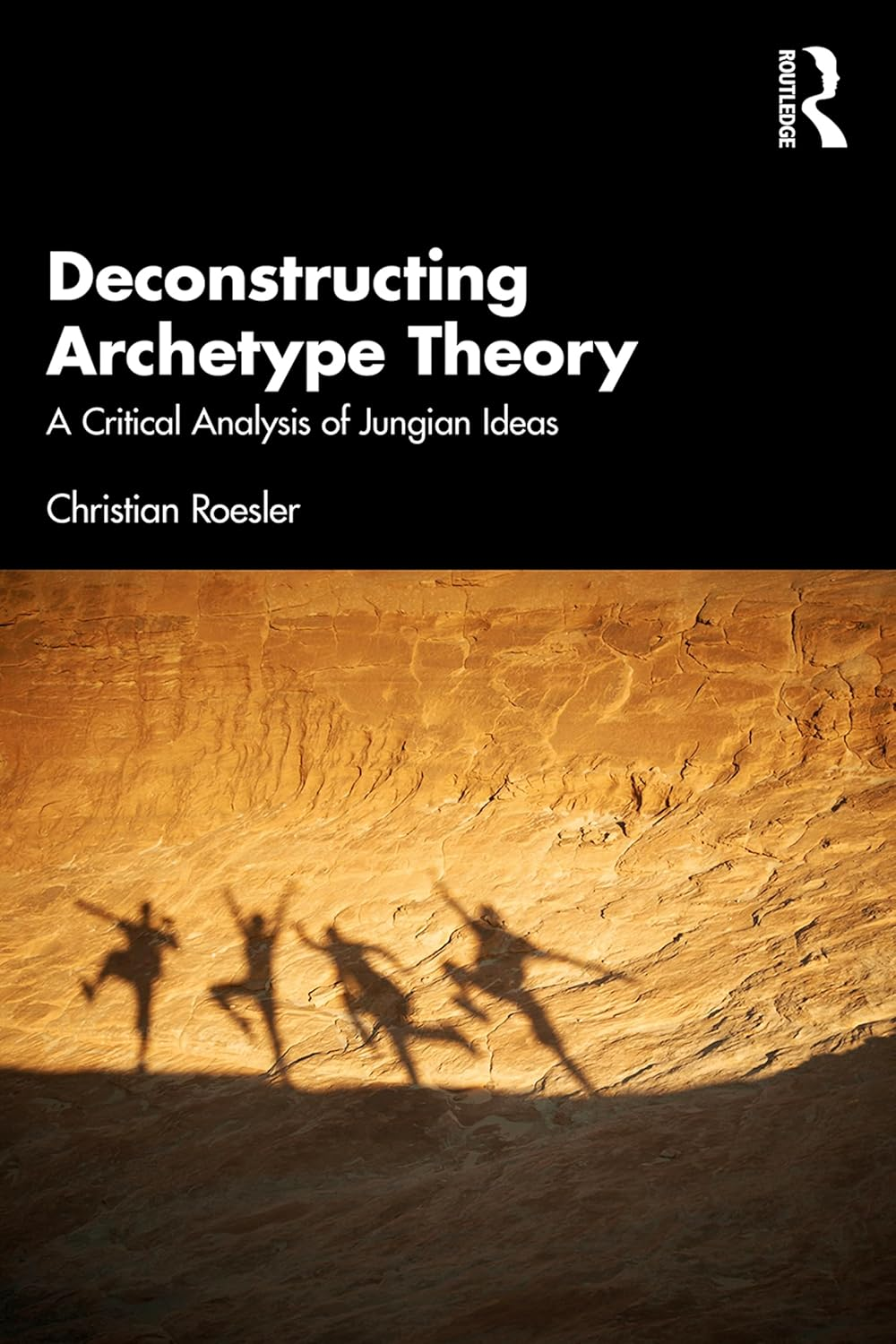 Deconstructing Archetype Theory: A Critical Analysis of Jungian Ideas
Deconstructing Archetype Theory: A Critical Analysis of Jungian Ideas
Exploring not only Jung’s original writings but also the range of interpretations used by Jungian scholars today, Christian Roesler argues in this book that Jung’s conceptualization of archetype theory is not a single coherent theory; rather, it is four different theories which must be understood separately.
December 2025
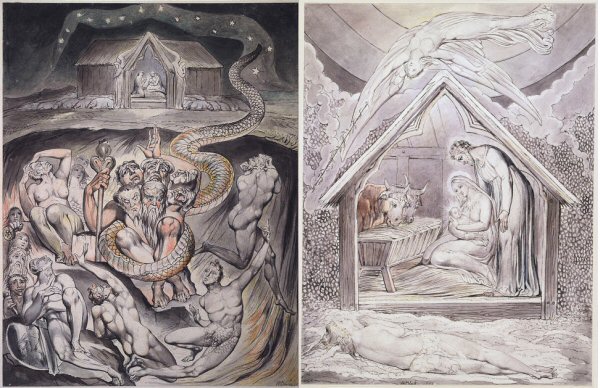 Christmas, Shadow, and the reconciling Feminine as pathways to the Self
Christmas, Shadow, and the reconciling Feminine as pathways to the Self
This article explores the deeper meaning of Christmas beyond its commercial trappings. From the hidden dimensions of the Self to the archetypal roles of Mary and Joseph, the author guides readers through a rich journey of inner reflection and spiritual renewal, revealing how Christmas can serve as a catalyst for personal and collective transformation.
Rachel Huber
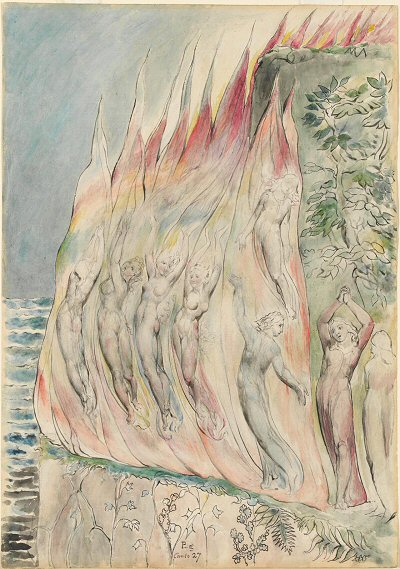 Dante and love in C.G. Jung’s Red Book
Dante and love in C.G. Jung’s Red Book
This ardent article explores Dante’s Commedia as a visionary journey shaped by love, showing how C.G. Jung found in it a model for his descent into the unconscious. Moving between fire and form, eros and logos, the analysis culminates in love not as dogma but as enigma: a force that animates visions and calls the “I” into service of the soul.
Tommaso Priviero, PhD
Of Fire and Form: Jung, Dante, and the Making of the Red Book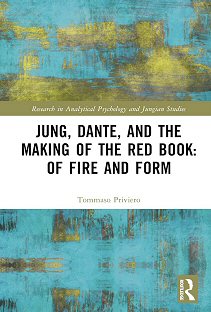
In this book Tommaso Priviero offers a fresh Dantesque reading of Jung, tracing Dante’s influence in the Red Book and exploring the relationship between analytical psychology and what Jung referred to as “visionary literature. This book presentation also includes a reflective essay by the author.
November 2025
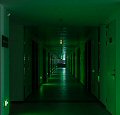 Wandering in the Backrooms: Liminal spaces, digital myth, and a Jungian reading of the Void
Wandering in the Backrooms: Liminal spaces, digital myth, and a Jungian reading of the Void
This diptych explores the Backrooms as a contemporary figure of katabasis, a descent into the collective unconscious in the digital age. Between disintegrated mythology, the anxiety of emptiness, and liminal aesthetics, the article brings video games, cinema, and contemporary art into resonance with Jungian thought.
Dragana Favre, PhD
 Exploring paradox in the analytic process: An interview with Martin Schmidt
Exploring paradox in the analytic process: An interview with Martin Schmidt
Drawing on Jungian and psychoanalytic thought, Martin Schmidt reflects on the concept of the Self, his work with psychotic patients, cultural complexes in Russia and China, the role of beauty, art, and the sublime, temporality, the breaking of the analytic frame, and eroticized trauma.
Interview by Peggy Vermeesch, PhD
Also available as a video interview.
October 2025
Bringing together Bergson’s élan vital, Deleuzian difference, Jung’s concept of libido, contemporary cognitive neuroscience, and the neural networks of AI, this article explores falling in love with life as a universal archetype of transformation, demonstrating a single underlying movement: the possibility of becoming Other.
Dragana Favre, PhD
Susan Tiberghien discusses her memoir Seasons of Love: A Lasting Marriage, recounting her 66-year journey with her French husband, marked by joy, faith, and the courage to confront sexual abuse within the larger family. With her daughter Catherine, she reflects on the alchemical stages of love and transformation, beginning with the nigredo, and moving toward an ever-deepening coniunctio.
Interview by Peggy Vermeesch, PhD
September 2025
 From neuroscience to the depths of the psyche: An interview with Dragana Favre
From neuroscience to the depths of the psyche: An interview with Dragana Favre
Dragana Favre, psychiatrist and doctor of neuroscience, blends scientific rigor with a deep sensitivity to the psyche and the major upheavals of our time. In this interview, she reflects on her unique journey, where science meets Jungian psychology, offering fresh insights into the challenges we face today.
Interview by Jean-Pierre Robert
A strange, luminous dream unfolds: Orpheus addresses an assembly, bringing calm, until Eurydice enters with lit candelabra—only to realize they are Orpheus’s hands. This symbolic and contemplative essay weaves together dream imagery, myth, and Jungian themes to explore the archetypal significance of the hand.
Claire Droin
August 2025
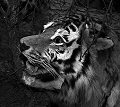 When Psyche speaks in images: An interview with Yury Li-Toroptsov
When Psyche speaks in images: An interview with Yury Li-Toroptsov
From the Russian taiga to the C.G. Jung Institute in Zurich, Yury Li-Toroptsov has followed a path shaped by images, working as a coach and analyst-in-training with dreams, fairy tales, and visual symbols, while also practicing as a photographer. For him, images are fundamental expressions of the psyche, revealing what words cannot, connecting us to hidden parts of ourselves, and guiding inner exploration and transformation.
Interview by Jean-Pierre Robert
Pictures of Jung’s childhood home and school in Basel
« My earliest memories of art go back to those years at Klein-Hüningen. The house where my parents lived was the eighteenth-century parsonage, and in it there was a dark room. Here all the furniture was good, and old paintings hung on the walls. […] Often I would steal into that dark, sequestered room and sit for hours in front of the pictures, gazing at all this beauty. It was the only beautiful thing I knew. »
Quotes from C.G. Jung, MDR
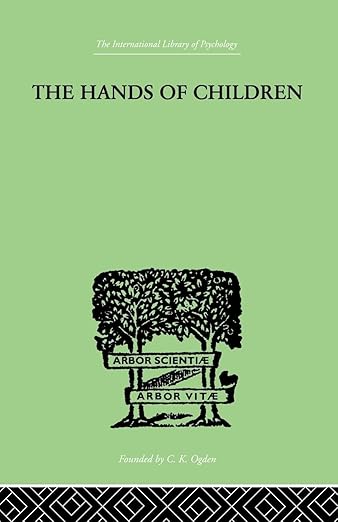 The Hands of Children: An Introduction to Psycho-Chirology
The Hands of Children: An Introduction to Psycho-Chirology
In this book, Julius Spier presents a fresh and promising approach to understanding human character—an approach that was praised by Carl Gustav Jung, who wrote the introduction. Even today, it remains a singular and inspiring work for those interested in the connections between the body, the psyche, symbolism, and education.
May 2025
 Unrequited Love, Father Wound, and Fragility of Self: An interview with Susan Schwartz
Unrequited Love, Father Wound, and Fragility of Self: An interview with Susan Schwartz
Susan Schwartz reflects on the wounds left by absent or lacking paternal love and their resonance in the therapeutic relationship.
Interview by Peggy Vermeesch, PhD
The above interview is also available as a video and marks the launch of a dedicated page featuring videos and audio recordings from our site’s contributors and activities.
April 2025
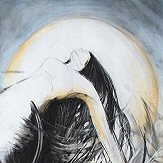 Radical ordinariness: John McNeil and the alchemy of jazz
Radical ordinariness: John McNeil and the alchemy of jazz
Trumpet artist Ryan Nielsen explores jazz through the lens of alchemy in homage to his mentor, John McNeil. A waking dream image pulled him from his Mormon upbringing to Boston to study with McNeil, whose approach centers on radical ordinariness and self-acceptance as the heart of the alchemical opus. The piece is threaded with musical links.
Ryan Nielsen, DMA
March 2025
 Theater of Shadows & In Search of the Self: An interview with Lucas Costanzi
Theater of Shadows & In Search of the Self: An interview with Lucas Costanzi
The Brazilian filmmaker Lucas Costanzi discusses his two documentaries inspired by Jungian thought: Theater of Shadows and In Search of the Self. These films explore the significance of the shadow and the inner journey that leads to our deepest self: a path that distances us from the influences of the surrounding collective.
Interview by Jean-Pierre Robert
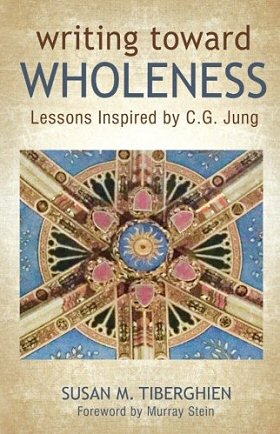 Writing Toward Wholeness: An interview with Susan Tiberghien
Writing Toward Wholeness: An interview with Susan Tiberghien
Susan Tiberghien reflects on her journey as a writer, the transformative power of journaling, and Jung’s influence on her work. She emphasizes the importance of keeping your own Red Book and writing to your soul.
Interview by Jean-Pierre Robert
January 2025
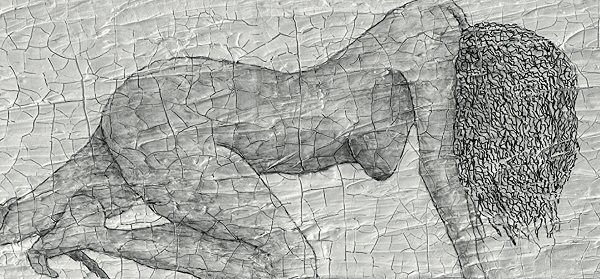 Exploring the Puella archetype: Girl unfolding
Exploring the Puella archetype: Girl unfolding
Puella represents the young feminine on the brink of becoming and at a crossroads. This article explores this feminine archetype through archetypal images, etymology, and its alignment with the mythological maiden. We learn about ourselves by examining the puella’s roles and enactments, assumptions and perceptions, acquired consciously and unconsciously.
Susan E. Schwartz, PhD
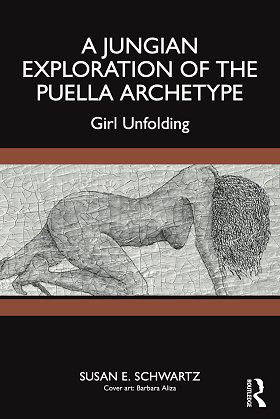 A Jungian Exploration of the Puella Archetype; Girl Unfolding
A Jungian Exploration of the Puella Archetype; Girl Unfolding
In this book Susan Schwartz explores the puella as an archetypal, symbolic and personality figure reaching into the classical foundations of Jungian analytical psychology, focusing on the modern conflicts reverberating personally and culturally to remove the obstacles for accessing our more complete selves.
December 2024
 The Decline of Sexuality: An interview with Luigi Zoja
The Decline of Sexuality: An interview with Luigi Zoja
Luigi Zoja reflects on the ongoing decline of sexuality, shedding light on a significant issue that has long been overlooked. He examines the complexities and paradoxes facing contemporary generations as they navigate this profound transformation.
Interview by Claire Droin
October 2024
 Sabina Spielrein’s life and destiny
Sabina Spielrein’s life and destiny
This article draws on Jungian typology to offer a fresh perspective on Sabina Spielrein’s complex journey. Tragically, the destructive forces that Spielrein insightfully described in 1912 and relentlessly opposed throughout her life would ultimately prevail.
Jean-Pierre Robert
 Visit of the house of Emma and C.G. Jung
Visit of the house of Emma and C.G. Jung
Reflections on the home of Emma and Carl Gustav Jung highlight the alchemical symbolism in the objects of their shared lives, shedding light on their dynamic partnership. The house also evokes Jung’s Swiss heritage, inspiring a creative engagement with the past and a deeper connection to cultural grounding.
Rachel Huber & Bernard Hort
The history and restoration of the residence of Emma and Carl Gustav Jung-Rauschenbach. Featuring nearly 160 photographs and plans, this book takes readers through the various stages of the project: the original designs, the construction process, and the different adaptation and renovation works, with the most recent updates dating from the 2000s.
July 2024
In his book Paranoia: The Madness That Makes History, Luigi Zoja offers a multidimensional analysis of paranoia, illuminating historical events through a psychological lens. This essential read provides crucial insights into the dangers of this « lucid madness » and its implications for our contemporary world.
Top Pick by Claire Droin
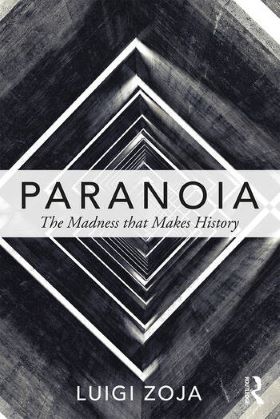 Paranoia: The Madness That Makes History
Paranoia: The Madness That Makes History
Luigi Zoja presents an insightful analysis of the use and misuse of paranoia throughout history and in contemporary society. Zoja combines history with depth psychology, contemporary politics and tragic literature, resulting in a clear and balanced analysis presented with rare clarity. The devastating impact of paranoia on societies is explored in detail.
 Individuation of Analytical Psychology: An interview with Mark Saban
Individuation of Analytical Psychology: An interview with Mark Saban
Jungian analyst Mark Saban, author of Two Souls Alas: Jung’s Two Personalities and the Making of Analytical Psychology discusses the book’s core premise, its clinical implications, and his motivations for writing it. He argues that for the Jungian world to individuate, the personal and the archetypal must meet and be brought into tension with one another.
Interview by Peggy Vermeesch, PhD
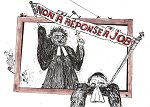 Answer to Job: Jung and his critics
Answer to Job: Jung and his critics
This article explores Jung’s 1951-1954 correspondence with theologians such as Victor White and Dorothee Hoch in order to delve into the contentious reception of « Answer to Job ». This analysis highlights the key arguments and insights from these letters, providing a deeper understanding of the criticisms Jung faced.
Ariane Callot, Doctor of philosophy
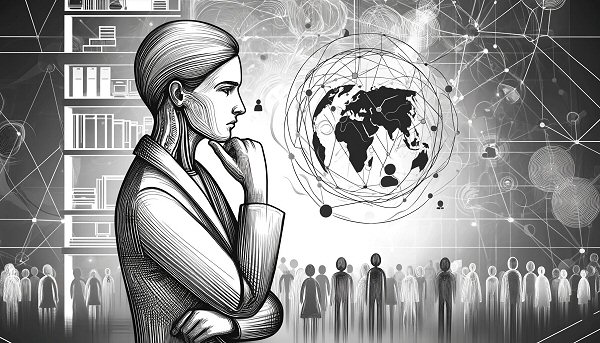 Humanity’s challenge in the face of Artificial Intelligence
Humanity’s challenge in the face of Artificial Intelligence
Advances in AI are making headlines. They offer promising prospects but also pose real threats. This article discusses several of these aspects and emphasizes the need to find a balance in response to these developments, starting with a return to self.
Jean-Pierre Robert
May 2024
This article explores how a therapist can accompany the type of patient whose healing and transformation depend on being given a second chance to experience a healthy parental first love through the myth of Star Trek.
Peggy Vermeesch, PhD
 Dune: Was Frank Herbert inspired by C.G. Jung?
Dune: Was Frank Herbert inspired by C.G. Jung?
The release of the 2021 and 2024 Dune films reignited interest in Frank Herbert’s epic saga. This article examines how Jung’s theories—particularly his concepts of the unconscious—are reflected in Herbert’s work, with a focus on how some of Jung’s boldest ideas emerge in Whipping Star.
Ariane Callot, Doctor of philosophy
April 2024
 Call for papers for the IAJS Online Conference and C.G. Jung Award
Call for papers for the IAJS Online Conference and C.G. Jung Award
Presented by the International Association for Jungian Studies (IAJS)
December 6th – 8th 2024
Deadline submissions: 31 August 2024
November 2023
 The New Borg in Star Trek Picard: transformation of the collective shadow (3/3)
The New Borg in Star Trek Picard: transformation of the collective shadow (3/3)
This is a different story than the hero journey we are so used to. In line with Erich Neumann’s theories on the New Ethic, evil is not defeated or killed. Instead, it is accepted as part of oneself, negotiated with, and allowed to transform.
Peggy Vermeesch, PhD
October 2023
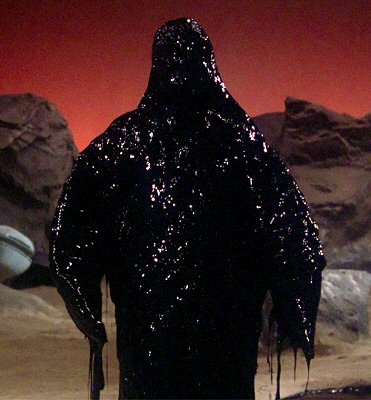 Collective shadow projection and scapegoating: Skin of Evil (2/3)
Collective shadow projection and scapegoating: Skin of Evil (2/3)
The Star Trek episode Skin of Evil is used to explore the Jungian concepts of persona identification, inflation, shadow projection and the concept of scapegoating according to Erich Neumann. The dialogues echo active imagination. The need to integrate the shadow is clearly shown.
Peggy Vermeesch, PhD
September 2023
In light of Jungian analyst Erich Neumann’s approach we explore the collective unconscious in its devouring and destructive shadow aspect, as illustrated by the Borg in Star Trek.
Peggy Vermeesch, PhD
June 2023
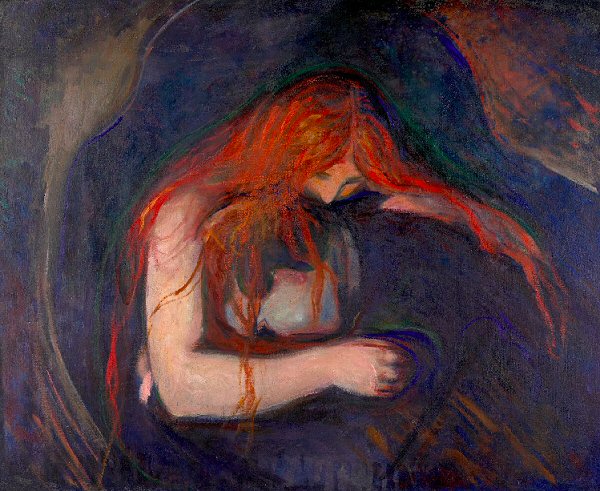 Intergenerational trauma and healing (part 3/3)
Intergenerational trauma and healing (part 3/3)
Narcissistic abuse often stays unrecognized and hidden for both victim and environment. Narcissistic strategies like love bombing, isolating, and gaslighting operate in the background. What are the ways in which we can become conscious and heal from this kind of relational trauma?
Peggy Vermeesch, PhD
May 2023
 Tricked into carrying someone else’s shadow (part 2/3)
Tricked into carrying someone else’s shadow (part 2/3)
The shadow that is innately ours has become intertwined with the shadow that we are forced to carry in projection. Under these circumstances the choice between hiding or admitting our larger-than-life shadow becomes a matter of life and death.
Peggy Vermeesch, PhD
March 2023
In accordance with the work of C.G. Jung, this article explains how homeopathy can escape the law of causality in some aspects by relying on meaning through meaning: synchronicity.
Bernard Long, M.D.
February 2023
 What fairy tales can teach us about healing from early trauma and narcissistic abuse (part 1/3)
What fairy tales can teach us about healing from early trauma and narcissistic abuse (part 1/3)
Growing up with a narcissistic parent has long-term harmful effects. In this series of articles I explore what fairy tales can teach us in terms of breaking this cycle of intergenerational trauma.
Peggy Vermeesch, PhD
January 2023
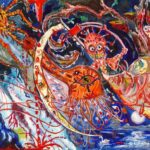 C.G. Jung, Gerard de Nerval, and Aurelia
C.G. Jung, Gerard de Nerval, and Aurelia
This essay illustrates the all-time importance of facing your shadow. The article discusses why Jung was so deeply moved by French romantic poet Gérard de Nerval’s literary Aurélia.
Ariane Callot, Doctor of philosophy
November 2021
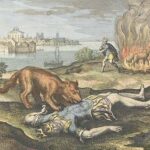 Crying wolf! The homeopathic remedy lycopodium clavatum
Crying wolf! The homeopathic remedy lycopodium clavatum
Lycopodium clavatum is a very important remedy in the homeopathic pharmacopoeia. It is haunted by its territory, by the concern of size and greatness. It is the remedy of the authoritarian crisis, of the separation from the symbiosis where the subject is confronted with the paternal function.
Bernard Long, M.D.
August 2021
 Toni Wolff’s structural forms of the feminine psyche
Toni Wolff’s structural forms of the feminine psyche
As a complement to C.G. Jung’s theory of the psychological functions Wolff developed an innovative theory of the feminine psyche. One path to individuation is integrating all four structural forms or types. This is equally true for women and men, regardless of their gender identity or sexual orientation.
Peggy Vermeesch, PhD
July 2021
The need to acknowledge the archetypal forces within
 The archetypal forces that are active deep within our unconscious call for expression, somehow, whether we ask for it or not, and whether we want it or not. Our ego is instrumental in reducing the raw power of these archetypal forces.
The archetypal forces that are active deep within our unconscious call for expression, somehow, whether we ask for it or not, and whether we want it or not. Our ego is instrumental in reducing the raw power of these archetypal forces.
Peggy Vermeesch, PhD

 Falling in love with life
Falling in love with life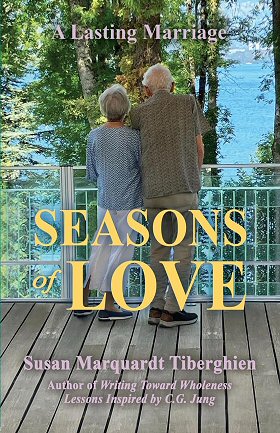 Darkness and Light in Seasons of Love: An interview with Susan Tiberghien & Catherine Chevron-Tiberghien
Darkness and Light in Seasons of Love: An interview with Susan Tiberghien & Catherine Chevron-Tiberghien The hands of Orpheus
The hands of Orpheus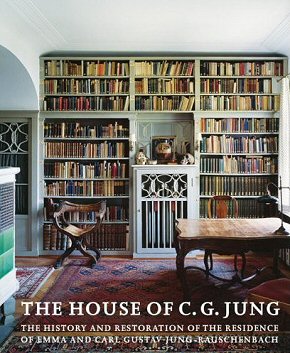 The House of C.G. Jung
The House of C.G. Jung Paranoia or Lucid Madness
Paranoia or Lucid Madness Holding the tension of the erotic transference: embodying Captain Picard in Star Trek’s “The Perfect Mate”
Holding the tension of the erotic transference: embodying Captain Picard in Star Trek’s “The Perfect Mate”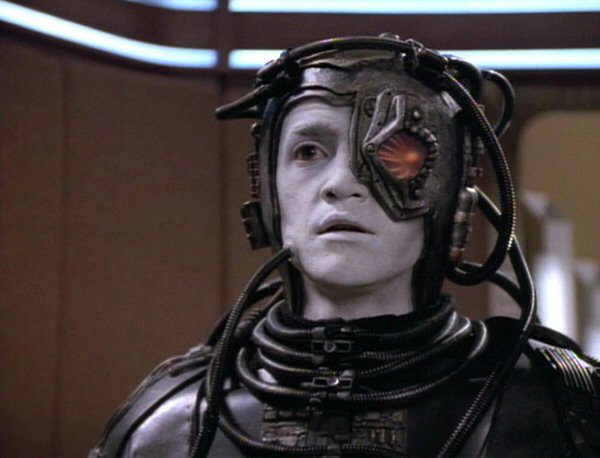 Star Trek’s Borg: symbol of the collective unconscious in its devouring and annihilating shadow aspect (1/3)
Star Trek’s Borg: symbol of the collective unconscious in its devouring and annihilating shadow aspect (1/3) Homeopathy and synchronicity
Homeopathy and synchronicity